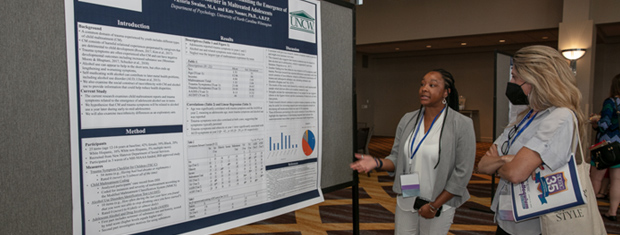




The APSAC Advisor is a peer reviewed quarterly news journal for professionals in the field of child abuse and neglect.
The APSAC Advisor provides succinct, data-based, practice-oriented articles that keep interdisciplinary professionals
informed of the latest developments in policy and practice the field of child maltreatment. It is designed to highlight
best practices in the field and publish original articles and current information about child maltreatment for professionals
from a variety of backgrounds including medicine, law, law enforcement, social work, child protective services, psychology,
public health and prevention in the U.S.
 If you wish to learn more about submitting an article to the Advisor, please click here.
If you wish to learn more about submitting an article to the Advisor, please click here.
This library contains Advisor issues dating back to the first issue in 1988. The most recent issue appears at the top.
Scroll down to select past issues by year and issue number. Once a publication appears in the box, you
can use the Enlarge button to open the document in a new window or tab (depending on how your browser is set up).
This will allow you to view the document with larger print.
To print a document, first use the Enlarge button to open the document in a new window or tab. Then use your browser's Print command.
To return here from a new tab, close the tab. To return from a new window, click your browser's Back button.
In the listing below, click on a year and issue number to see the articles in that publication.
2016 Number 2
Differential Response: A Dangerous Experiment in Child Welfare
Differential Response (DR) represents the most important child welfare initiative of the day, with DR programs rapidly expanding throughout the country. This article describes the serious risks DR posts for children and the flawed research being used to promote DR as "evidence-based." It puts the DR movement in historical contest as one of a series of family preservation movements, supported but a merger of advocacy with research. The author calls for a change in the dynamics of child welfare research and policy so that we can avoid endlessly repeating history.
This article reviews how DR programming has misconstrued and vilified the CPS investigation and bifurcated it from the family assessment, often resulting in assignment of only the most egregious allegations to the traditional response track and diverting all others, including moderate and higher-risk families, to the alternative track, potentially increasing risk to children. The authors describe the CPS investigation and the family assessment as essential components of fact finding for almost all families served in CPS. They also explore the philosophical, legal, and practical framework for CPS investigation as a unique approach to CPS fact finding, different in both purpose and method from the more intrusive forensic investigation, and critical to ensuring child safety.
Minnesota’s Experience with Differential Response
Minnesota was an early adopter of Differential Response and provided a model program that was replicated by many other states. In 2014, a series of news articles examining Minnesota's child protection system highlighted flaws in direct practice that had contributed to the death of a child served in an alternative track. This article describes the events that led to the formation of the Governor's Task Force on Child Protection, which was tasked with rethinking and revamping Minnesota's AR program to ensure child safety.
Differential Response in Child Protection: How Much Is Too Much?
An original goal of DR was to offer services to lower-risk families to prevent the need for more intrusive CPS intervention at a later time. This study explored track assignment patterns and re-report rates in 13 states operating DR programs. It found that re-referral rates for alternative track families were higher than re-report rates for traditional track families when more than 1/3 of all screened-in families were assigned to the alternative track, suggesting that many moderate and high risk families were also being assigned to alternative tracks. The article explores ways to improve the accuracy of track assignment decisions to prevent the assignment of higher-risk families to the alternative track.
Pioneer Institute: To Ensure Child Safety in Massachusetts, Most Critical Reforms Are to DR Program
This article reviews a policy report by the Pioneer Institute. The policy report was prompted by a series of high-profile cases of serious abuse, neglect, and child death that occurred in Massachusetts, despite a range of reforms that had been enacted by the state’s administration. Based on their review of Massachusetts’ CPS programming, as well as DR research and the experiences of other states with DR programs, authors from the Pioneer Institute made a series of recommendations to guide future reform efforts in Massachusetts. This article summarizes their findings and links readers to the original report.
APSAC Advisor 28(2): Full Issue